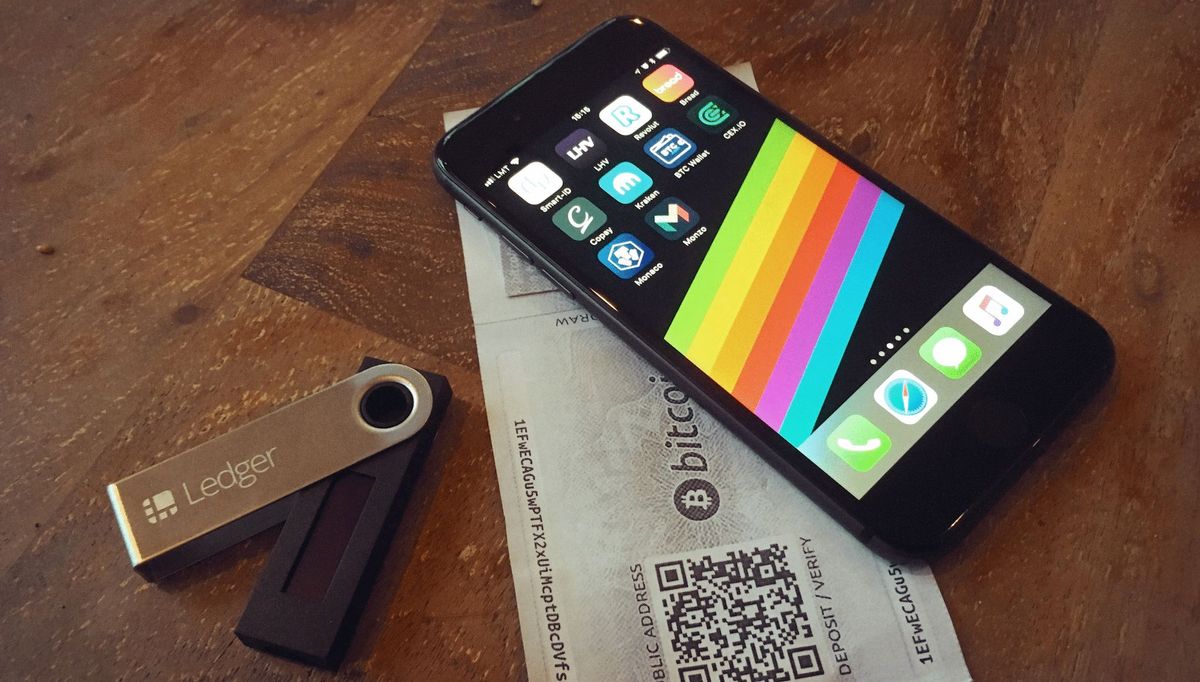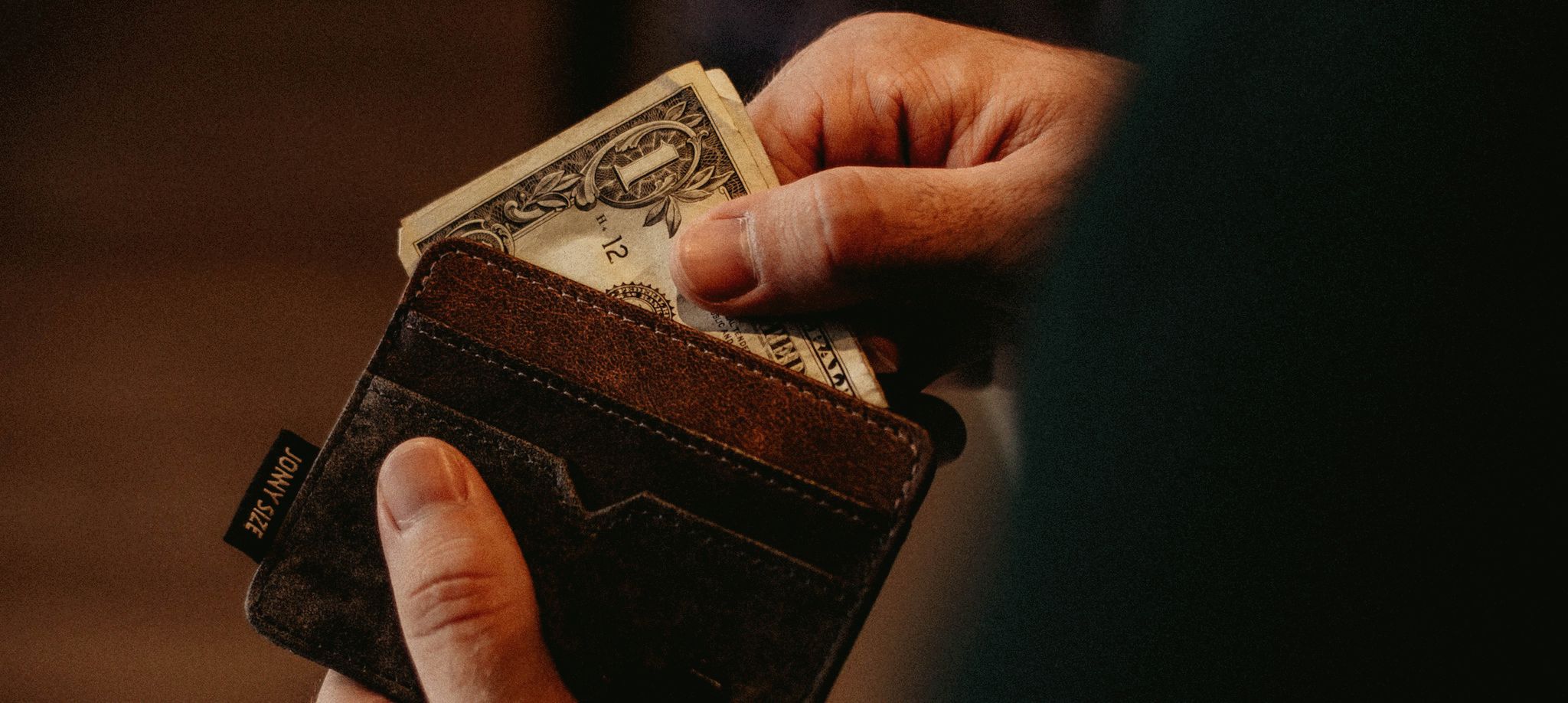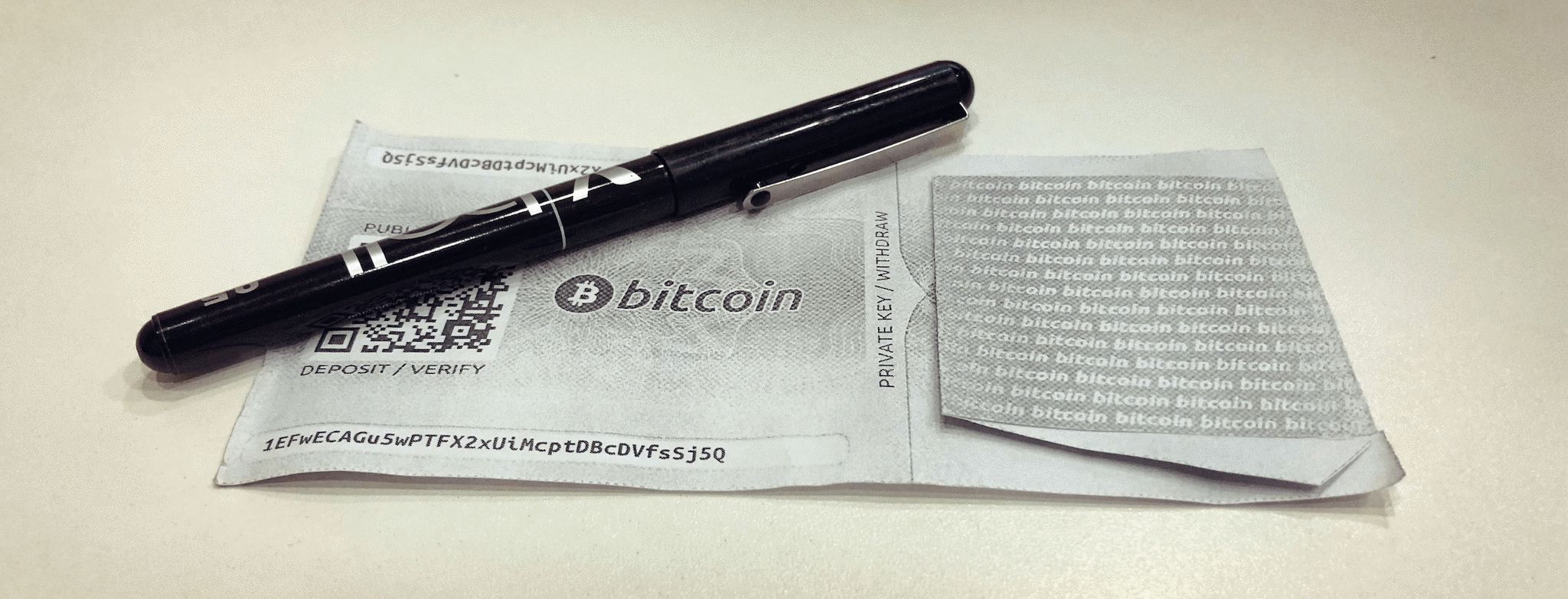Choosing The Best Bitcoin Wallet

One of the most confusing aspects for beginners willing to enter the bitcoin world is how to securely store your money. There are many options out there, and an overwhelming amount of information on the subject. In this article, I try to explain what a cryptocurrency wallet is, what bitcoin wallet options are out there, and what’s the best alternative for you.
Even though I will focus on Bitcoin wallets, the knowledge here is applicable to any other cryptocurrency (Ethereum, Litecoin, Dash, etc).
Bitcoin And The Blockchain In Four Sentences
To understand what’s a bitcoin wallet, you need to know first how bitcoin and its underlying blockchain work. Don’t worry, I’ll try not to get too technical here.
The blockchain is the technology underlying Bitcoin, and its main breakthrough innovation. Basically it’s a distributed, continuously growing list of blocks that are tied together forming a ledger.
The blocks in the list are tied together securely using cryptography. Here, “securely” means that as more blocks are piled on top of one of them, it gets more difficult to modify or taint the content of this block, until becoming virtually impossible. It’s distributed nature also makes it resistant to centralized control attempts or attacks.
So what’s inside those blocks? Money transactions! Concretely, every block contains a series of transactions from a series of senders to a series of recipients. These transactions eventually get securely recorded and confirmed in the blockchain, making it virtually impossible for anyone to revert them.
As this information is publicly available for everyone, by computing every transaction since the inception of the cryptocurrency, we can determine the amount of bitcoins owned by a concrete recipient.
What’s a Bitcoin Wallet
So, how do we identify these senders and recipients? In order to specify who or more correctly where to send bitcoins, we use addresses. Every bitcoin user has a pair of digital keys. One is the private key, and should be kept in a safe, secret place by its owner. The other one is a public key, that is created from this private key.
How do these keys work? Basically, your public key is used to generate an address where you can receive bitcoins. Conversely, the private key can be used to send bitcoins to someone else’s address. A bitcoin address, generated from the public key, usually starts with a “1”, and looks like this:
1MfYpjh9iijGNMDqCqtubqHoakkFbQJbLb
Similarly, a private key usually starts with a 5 and looks like this.
5JHzcn7pEZFzEsmc7GEyHywpiVme5qa4q2x3LV3dBQTfn8NCVPe
It’s extremely important to keep your private key secure. Anyone with access to it can use it to send your bitcoins to another address.
Then, how do you generate and manage those keys? That’s what a wallet is for. A wallet is a piece of software that abstracts you from all the technical blockchain mumbo-jumbo. It allows you to send bitcoins contained in your wallet by signing a transaction with your private key. Also, it will allow you to receive bitcoins by giving your public address to someone.
It’s useful to think of a bitcoin wallet as a bank account app or website. It has a public address (an IBAN or account number) that people can use to send you money. Also, you have a secret PIN or password to access the bank website or App and send money to someone else.

Security Considerations
Due to their special nature, there are some security considerations to keep in mind when managing cryptocurrencies. Being digital assets, they’re easier to steal than fiat currency if you keep them in a device that’s connected to the internet.
However, don’t let that scare you. With some common sense and good security practices, you should be able to keep your money safe.
The first important consideration is not keeping all your bitcoins in a single wallet, especially if it’s an online wallet. Just as you won’t keep all your money in the wallet you carry with you, you shouldn’t store all your bitcoins in a wallet that’s kept in an online server.
As we will see later, there are different types of wallets for different things, and some of them are more secure than others.
Secondly, it’s important to follow some general security guidelines for your devices, especially when you own cryptocurrencies. Some of these include not installing software of unknown or suspicious sources, not opening emails or attachments from people you don’t know… you know, the usual stuff.
A keylogger or malicious software stealing your keys or wallet passphrase can wreak havoc on your crypto finances.
Finally, there are exchanges where you can trade between cryptocurrencies and fiat currencies, like CEX.io -the one I personally recommend-, Coinbase or Kraken. I will talk about them in depth in a future article.
In such places, you can buy bitcoins, for example, by paying them with euros from your bank account or credit card. These bitcoins get added to your balance in the exchange, i.e: there’s an online wallet associated to your user in that exchange. Hence, it’s always recommended to withdraw the funds immediately to a wallet you control.
With that considerations in mind, we are ready to talk about what types of wallets you can use to store your cryptocurrencies.
Types of Wallets
There are basically three types of wallets: online wallets, paper wallets and hardware wallets.
The first ones are called hot wallets, because they are connected to the internet. Conversely, paper and hardware wallets are called cold storage wallets. Let’s talk about them in detail.

Online Wallets
An online wallet is basically a web service or mobile App that stores your keys and offers you a user friendly interface for sending and receiving money.
It’s main advantage, aside from their ease of use, is the fact that you can transfer bitcoins (or any other cryptocurrency) fast. You just log in with your browser or open an app, and send some amount of money to another account. Easy as pie. Thus, they are very convenient for keeping and transferring smalls amounts of money.
Popular online wallets for Android and iOS include Copay, BTC.com or Bread -iOS only-. I especially love Bread for its simplicity and minimalist, beautiful interface. Another great online wallet, Copay allows you to buy bitcoins directly to your wallet by using the Coinbase exchange.
The main drawback of online wallets is the possibility of someone hacking them and stealing all your funds. As a rule of thumb, never store big amounts of money in an online wallet.
That’s also the reason why you should never keep your money in an exchange for more than 1-2 days after acquiring it.

Paper Wallets
A paper wallet is basically that: a wallet kept on a paper. In its simplest form, a wallet is a pair of keys. These keys are just two big numbers, but can be codified to a human-readable sequence of characters and then written on paper.
If these keys are generated completely offline, they are supposed to be safe because they have not been exposed to malicious attackers or malware. That’s why they are usually called “cold storage”.
Are They Safe?
Indeed, if generated correctly, a paper bitcoin wallet is completely secure. Nobody can steal your bitcoins as long as you don’t disclose the private key.
They are popular among the most paranoid folks and people owning a large number of bitcoins -usually kept under heavy security measures-.
Nevertheless, it’s a great way for you to store large amounts of money that you don’t intend to use regularly -i.e: as an investment-.
The main drawback of a paper wallet is that they are not convenient for regular transfers. Generally speaking, while you can receive as much bitcoins as you want, you should only use them to transfer money once, dumping the wallet afterwards.
The reason is simple. In order to use the funds, you need to import the private key into another wallet, usually a device connected to the bitcoin network. That potentially exposes the private key.
As a result, the general practice is spending all the money it contains at once and generate a new paper wallet where you transfer the unspent money.
Generating And Printing a Paper Wallet
While you could generate your keys yourself simply by flipping a coin repeatedly or rolling dice, there are some very convenient places like BitcoinPaperWallet, BitAddress or WalletGenerator where you can print a predefined template with your keys.
In order to do this securely, the recommended procedure is booting your computer from a USB or Live CD Linux distribution, downloading the HTML website to a local folder, and then disconnect from the internet.
Next, once offline, open the HTML file in a browser, generate the keys and print the paper wallet (connecting the printer via the USB cable, not the network).
Finally, once printed, reboot the computer without connecting to the internet. This sequence of steps gives you a pretty good confidence that the keys have not been leaked anywhere.
If this sounded too technical, don’t worry, you will probably be more comfortable with something like a hardware wallet.
Hardware Wallet
A hardware wallet is probably the safest and most convenient way of storing your crypto finances. While considered cold storage, they have the best of both online and offline wallets.
On one hand, they provide a high level of security, similar to a paper wallet. The keys never leave the device, and all cryptographic operations happen inside. This means that your private key is secure.
They usually provide a mechanism for entering a PIN or associated passphrase via a hardware interface directly on the device. This is important, security-wise, to prevent your codes or passwords being leaked by a keylogger living inside your computer.
On the other hand, they provide an easy to use interface, and usually associated applications for your laptop or smartphone. This allows you to operate with your money just by plugging them to a USB port.
Conversely, as explained above, operating with a paper wallet usually requires a cumbersome process that’s not convenient for fast operations.
The two most well known hardware wallets are the Ledger Nano S and the Trezor wallets. Both are very similar in design and functionalities.
The Ledger Nano S wallet is the one that I own and can personally recommend. It has a reasonable price (around 70€), and it’s easy to use. You can use it not only for bitcoin, but for Ethereum, Bitcoin Cash, Litecoin, and some other altcoins.
In a future post, I will talk extensively on how to use and carry your hardware wallet securely, so stay tuned!
So, What’s The Best Bitcoin Wallet?
There’s no single answer to this question. I actually own cryptocurrencies in all three types of wallets. Each one serves a different purpose.
I usually have a tiny amount of money stored in an online wallet. I use it to make small payments on the go with my smartphone. It’s a very convenient and quick way of sending money when you don’t have access to your computer or a steady WiFi connection.
Obviously, as explained before, I store only a small amount of money in my online wallet.
A important note: due to its high fees, bitcoin is not a very appropriate coin for micro-transfers. For that purposes, Bitcoin Cash or Ethereum are much better choices.
Additionally, I have some amount of money in a paper wallet. This wallet is securely stored, and its purpose is keeping some bitcoins as a long-term investment.
Last, but not least, I store the majority of my crypto currencies in my Ledger Nano S hardware wallet. I carry it with me on my trips and do most important transfers with it. If it gets lost or stolen, I will be able to recover my private key thanks to the passphrase, import the money into another wallet, and ask for a new hardware wallet.
Conclusion
Recently I talked about the digital banking revolution, and how it can help digital nomads to operate in a more friendly framework than traditional banking.
In this article, I wanted to go one step further and give a quick introduction to bitcoin, what’s a bitcoin wallet, and describe the options to store your funds. Even though focused on bitcoin, this article is applicable to any cryptocurrency.
The idea here is: don’t be afraid to join the blockchain revolution. Trade a small amount of money for bitcoins, get a wallet, and explore the possibilities of this new currency paradigm.
I hope you enjoyed the post. I will describe in depth how you can start trading cryptocurrencies (bitcoin, Ethereum, Litecoin, etc) using exchanges in a future post.




Comments ()